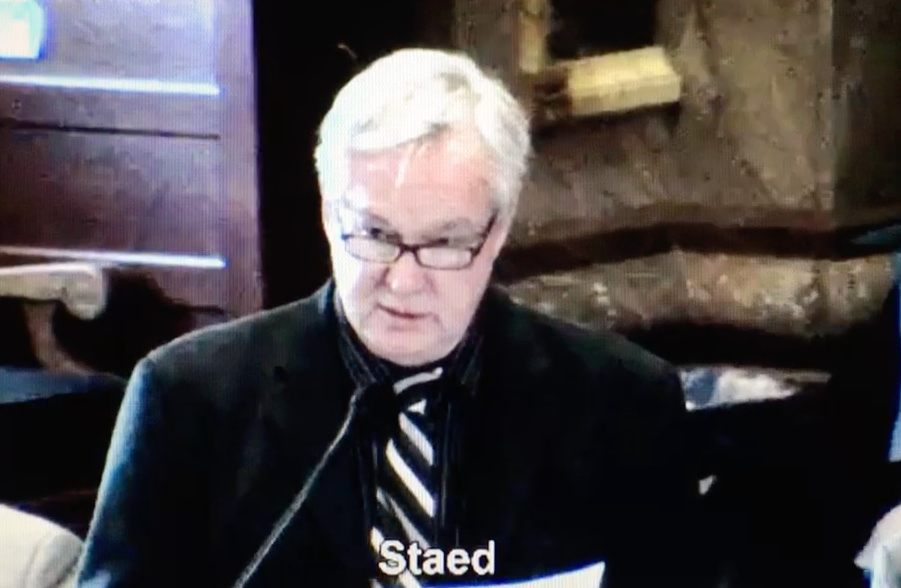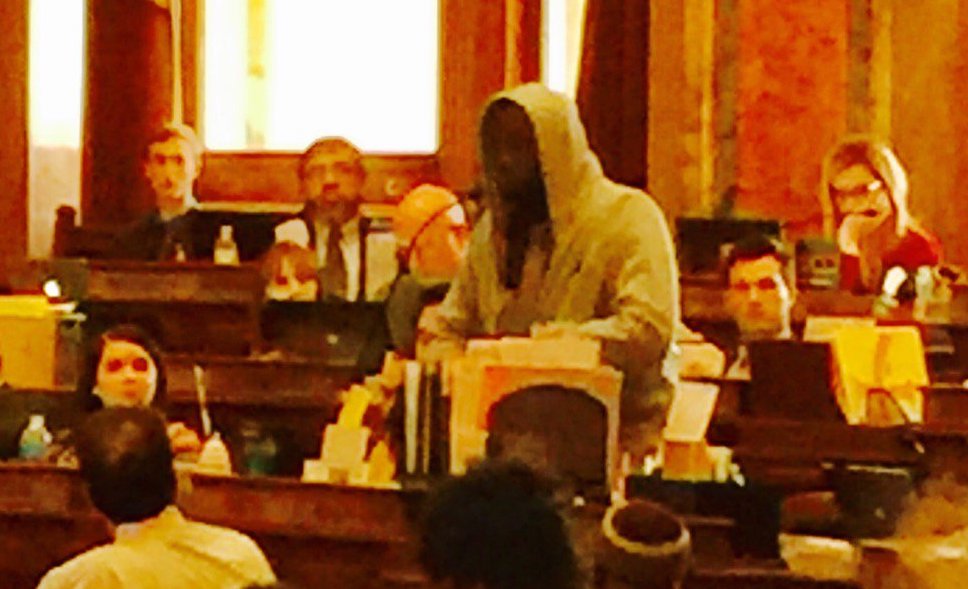Exciting times for Iowa politics watchers: the state legislature’s 2015 session began in Des Moines today. A tentative schedule for this year’s work is available here (pdf). The last day lawmakers will receive per diem expenses is on May 1, but for the past four years of divided control between a Republican House and a Democratic Senate, the session has always gone into overtime–sometimes by a little and sometimes by a lot. Bleeding Heartland previously posted details on the each chamber’s majority and minority leadership teams, along with all chairs, vice chairs, and members of standing committees. Click here for who’s who in the Iowa House, and here for who’s who in the Iowa Senate.
Today legislative leaders from both parties pledged to work together. After the jump I’ve enclosed the full texts of opening day remarks. Iowa Senate Majority Leader Mike Gronstal called for making Iowa’s middle class the “focus of the 2015 session” by ensuring adequate education spending, fighting wage theft, and expanding worker training while keeping a balanced budget. He praised Governor Terry Branstad for agreeing to go back to setting K-12 school funding a year in advance, as is required by state law, but warned the governor not to make a partisan statement by proposing too little funding for education when he addresses the legislature tomorrow.
Echoing some of the priorities she named last year, Senate President Pam Jochum said building an economy that “works for everyone” means supporting families and especially children: “For too long, the well-being of children has been considered a woman’s issue.’ It is not just a ‘woman’s issue’. It is an American issue. It is an Iowan issue.” Jochum urged lawmakers to expand access to education from pre-K through college, make “quality, affordable childcare” more available across the state, and boost an initiative to “detect and help prevent mental health and developmental problems among young children.”
Iowa House Minority Leader Mark Smith said the top priorities for House Democrats are strengthening the middle class and re-vitalizing rural Iowa. In addition to expanding early childhood education and providing adequate funds for K-12 schools, Smith called for raising the minimum wage, though GOP leaders have shown no willingness to negotiate on that issue.
As has been true in recent years, top Iowa House and Senate Republicans focused on fiscal issues and mostly avoided social issues. Iowa House Speaker Kraig Paulsen challenged his colleagues “to ensure that government do less and do it better” when “others bring forward their laundry list of funding opportunities, spending priorities, or flashy government programs.” He called for more tax cuts along the lines of a 2006 bipartisan agreement to eliminate the state tax on Social Security benefits. (Mike Owen of the Iowa Policy Project explained in a guest column for the Quad-City Times why that tax cut was passed “under false pretenses” and skewed Iowa’s tax code “further to the benefit of the wealthy.”) House Majority Leader Linda Upmeyer emphasized the need to “craft a responsible budget.” She singled out the Medicaid program for criticism, claiming growth in Medicaid spending is “not sustainable” and will threaten lawmakers’ ability to invest in education, job training, infrastructure, and renewable energy. Iowa Senate Minority Leader Bill Dix called on senators to “work together to rein in spending, make cuts and reduce the size of government and lift up all Iowans in the process by reducing their tax burdens.”
None of the Republicans set a goal of undoing marriage equality, and only House Speaker Pro Tem Matt Windschitl made passing reference to other top priorities for social conservatives when he said, “Let us work together to make Iowa the best place to live, where taxes are low, jobs are abundant, education is top of the line, innocent life is protected and Second Amendment rights are fully embraced.”
Any comments about the legislative session are welcome in this thread. By the way, here’s some trivia you may not know about Speaker Paulsen.
Continue Reading...









